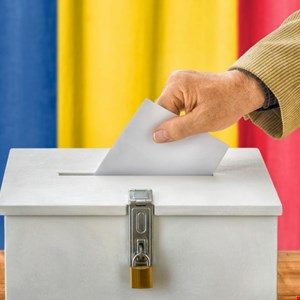- I tested Roomba's most functional robot vacuum yet, and it's worth every penny
- This thermal camera is my favorite smartphone accessory and it's on sale at Amazon
- "모든 임직원이 동요 중" 팻 겔싱어의 갑작스러운 퇴임을 보는 시선
- I found the AirTags that Android users have been waiting for and they're on sale
- These $70 wireless earbuds are my go-to recommendation for audiophiles on a budget
Cyber-Attacks Could Impact Romanian Presidential Race, Officials Claim

Romania’s national security council has warned that cyber-attacks are being used to influence the fairness of the country’s live presidential election.
The Supreme Council of National Defense revealed it was presented with assessments on the actions of state and non-state cyber actors targeting election infrastructure and processes in a meeting on Thursday, November 28.
While no specific information was provided about these attacks, the Supreme Council of National Defense strongly suggested that Russia could be behind these cyber influence attempts.
“Romania, along with other states on NATO’s Eastern Flank, has become a priority for the hostile actions of state and non-state actors, especially the Russian Federation, with a growing interest on its part to influence the public agenda in Romanian society and social cohesion,” the Council said.
Russia has frequently been linked with cyber-attacks seeking to influence and undermine elections in NATO member countries.
The Council’s statement came as Romania’s Constitutional Court ordered a recount of votes in the first round of the presidential election, which was won by Calin Georgescu, a nationalist and Moscow-friendly candidate.
Georgescu was due to enter a run-off against the runner-up Elena Lasconi, of the opposition Save Romania Union, on December 8.
The recount order was reportedly related to an allegation of fraud over votes awarded to Lasconi.
A decision on whether to annul the first-round result will be made on Friday, November 29.
Read now: Hacktivist Groups Target Romania Amid Geopolitical Tensions
TikTok Accused of Giving Preferential Treatment
The Supreme Council for National Defense also accused Chinese owned social media platform TikTok of giving preferential treatment to a particular candidate, which clearly referred to Georgescu.
It said that TikTok failed to identify Georgescu as a political candidate didn’t mark his content with a specific election code, as required by Romanian law, enabling him to benefit from “massive exposure” on the platform compared to other candidates.
“Thus, the visibility of that candidate increased significantly compared to the other candidates who were recognized by TikTok’s algorithms as candidates for the presidential elections, and the content promoted by them was massively filtered, exponentially decreasing their visibility at the level of the platform’s users,” the Council explained.
TikTok denied these allegations, with a spokesperson saying: “It is categorically false to claim that his account was treated differently from those of other candidates.”

